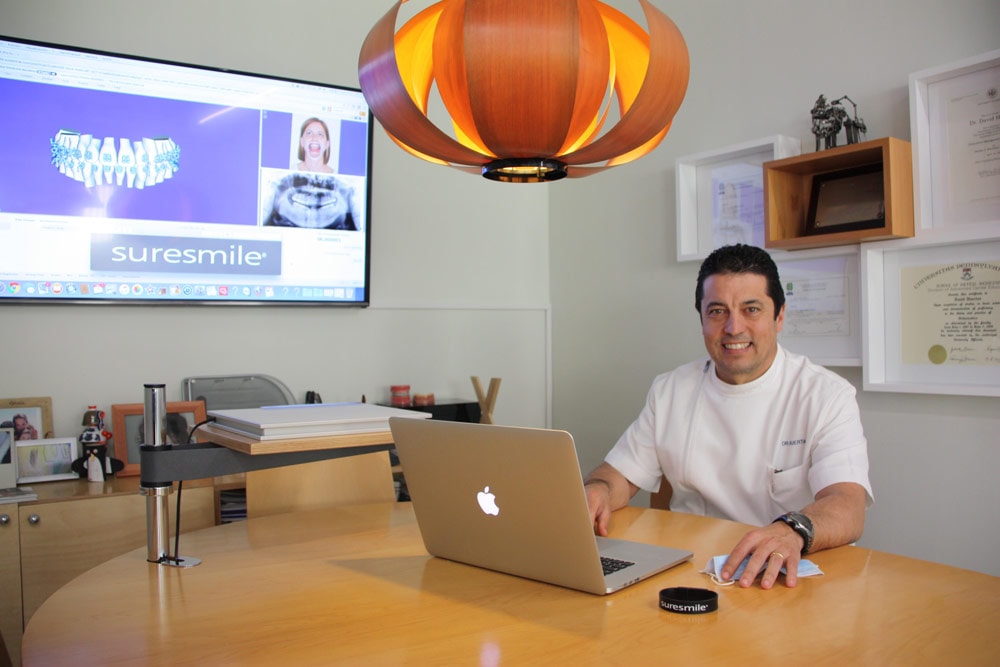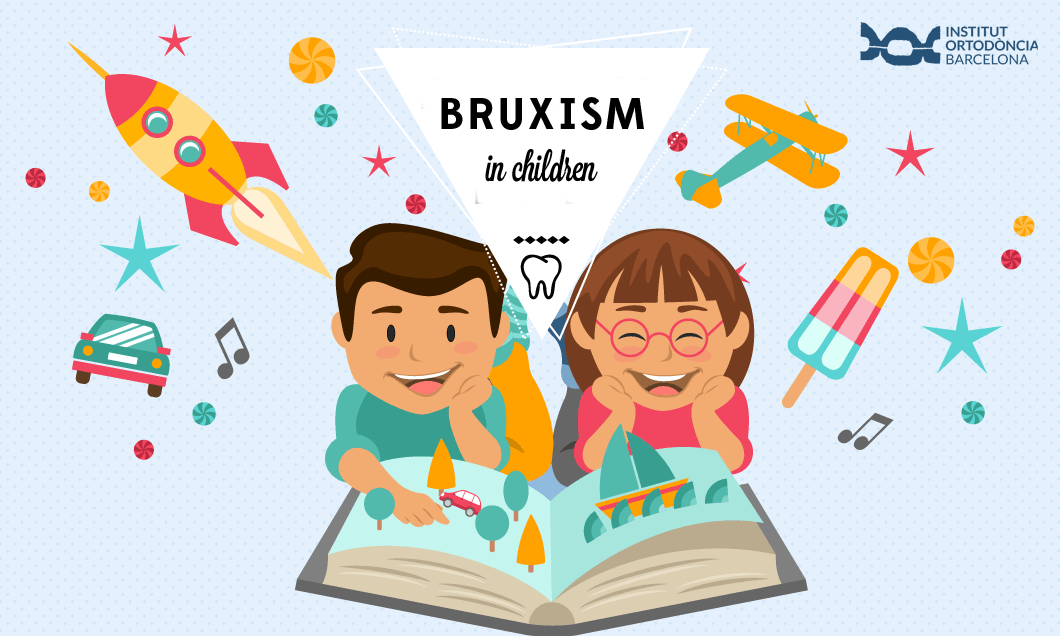We are seeing more frequently the arrival of mothers and fathers alarmed by the nocturnal teeth grinding of their children. As professionals, from the Institut Ortodoncia Barcelona, we have asked Dr. David Huertas some recommendations.
First of all is to make clear that adults are not the only ones who grind their teeth. Children also clench their jaws and grind their teeth unconsciously. In our clinic, we observe that the most often it occurs between the ages of 6 to 10, which coincides with the loss of their baby teeth and the growth of their permanent ones.

As Dr. Huertas indicates, even though we call it childhood bruxism, we do not consider it to be a pathology as it is for adults since it seems to disappear as the child nears adolescence. Childhood bruxism is actually a natural way for dentition to develop and to stimulate the formation of the muscles and bones of the face; a process of development which diminishes progressively when the permanent molars and the incisor teeth come out. As such, inicially no intervention is required. However, if the condition persists it can cause a series of problems for the child, such as pain and inflamation of the jaw, headaches and earaches and wearing of the teeth.
As Dr. Huertas points out there exists two types of bruxism: central (clenching) and excentric (grinding). Both can be diurnal and/or nocturnal, this being the most common in children who are not aware of their problem. Day time bruxism tends to be more clenching than grinding, night time bruxism can be both.
The psychological causes are all those disorders or alterations that can trigger emotional tension or stress. Here we have for example cases of hyperactivity or of very active children who during the day are very nervous and are constantly doing something, when night comes the activity continues in the clenching and grinding of teeth. Anxiety caused by changes in the child’s life (moving, birth of a sibling, parental separation, etc..) is also a frequent cause of bruxism.
Among the physical causes we can include headaches, earaches, the appearance of new teeth or the loss of baby teeth which give a new shape to the structure of the mouth or malocclusion (incorrect position of the teeth which interferes when the jaw closes). Even though there is controversy on this subject, it is commonly thought that childhood bruxism, often times, can coincide with the presence of intestinal parasites, since the discomfort that they generate is translated in the child’s restlessness and tension.
Definitely, childhood bruxism occurs when a child clenches and grinds his teeth, normally while asleep, and the parents need to be vigilant at the progression of its intensity, while trying to minimize the possible key causes in order for the child to enjoy a more relaxed and peaceful sleep and avoid the problems stemming from this disorder.
A final note, in spite of the fact that grandmothers often say that ‘’if children grind their teeth it is because they have worms’’ our experience tells us that there isn’t an evident relationship. In fact, it hasn’t been proven that the presence of intestinal parasites is one of the causes of childhood bruxism.
Before overly alarming ourselves first we need to wait. If after several months the child continues to grind his teeth, you can visit us in the Institut Ortodoncia Barcelona to look for the causes and obtain a solution. Childhood bruxism can be the result of psychological or physical causes.
Bruxismo en niños: prevención
What are the recommendations we give at the Institut Ortodoncia Barcelona? These are the four recommendations that our specialists offer to mitigate the effects that childhood bruxism may cause your child:
- Slow down physical and mental activity before sleep. You can use relaxation methods, aroma therapy, a relaxing bath before bedtime, read a story… It is important that the child does not go to bed sad or annoyed.
- Avoid parafunctional activities before sleep, like nail or lip biting or objects (such as pencils).
- Do not allow falling asleep in front of the television.
- Avoid exhausting exercises.


I really value your work, Great post.